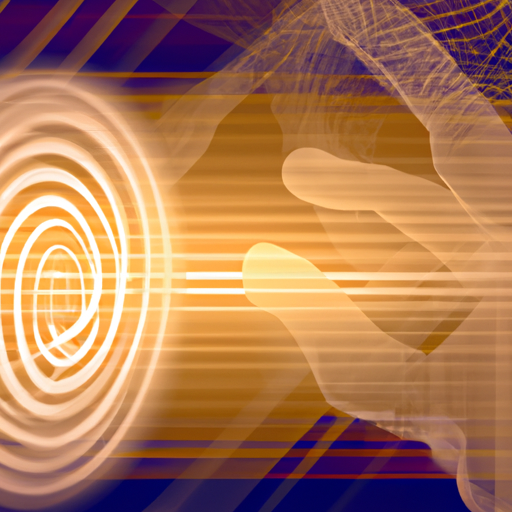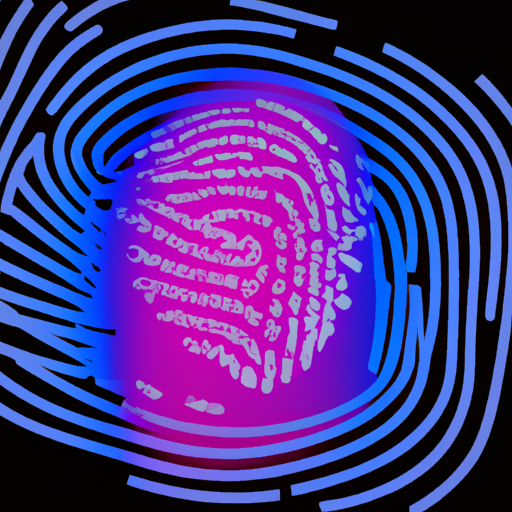-
LucksCasino.com Online - Live Casino ,Blackjack, Roulette, Slots, Telephone Gambling & Bets: Professional Article Collection
- Introduction
- Benefits of Biometric Authentication
- Types of Biometric Authentication
- How Biometric Authentication Works
- Advancements in Biometric Authentication Technology
- Common Misconceptions about Biometric Authentication
- Biometric Authentication in Banking and Finance
- Biometric Authentication in Healthcare
- Privacy Concerns with Biometric Authentication
- Future of Biometric Authentication
- Implementation of Biometric Authentication in Government Agencies
- Challenges with Implementing Biometric Authentication
- Comparison of Biometric Authentication to Traditional Passwords
- Cost Analysis of Implementing Biometric Authentication
- Q&A
- Conclusion
"Securely unlocking the longer term with biometric authentication."
Introduction
Biometric authentication is a security course of that makes use of distinctive bodily or behavioral traits to confirm the identification of a person. This expertise has gained recognition in latest years as a consequence of its accuracy and comfort in figuring out people. Biometric authentication can be used in numerous purposes, together with entry management, monetary transactions, and mobile gadgets. It offers a more secure and environment friendly method of verifying identification in comparison with conventional strategies comparable to passwords or PINs.
Advantages of Biometric Authentication
Biometric authentication is a expertise that makes use of distinctive bodily or behavioral traits to confirm the identification of a person. This expertise has change into more and more in style in latest years as a consequence of its high degree of security and comfort. On this article, we are going to focus on the advantages of biometric authentication.
One of many fundamental advantages of biometric authentication is its high degree of security. Not like conventional strategies comparable to passwords or PINs, biometric authentication can't be simply replicated or stolen. This is as a result of every particular person's biometric knowledge is distinctive and can't be duplicated. For instance, a fingerprint scanner can detect even the slightest variations in an individual's fingerprint, making it nearly unattainable for another person to make use of it to realize entry.
One other good thing about biometric authentication is its comfort. With conventional strategies, customers typically have to recollect a number of passwords or PINs for various accounts. This can be time-consuming and irritating, particularly in the event that they overlook their login information. Biometric authentication eliminates this problem by permitting customers to easily use their distinctive bodily or behavioral traits to entry their accounts.
Biometric authentication additionally offers the next degree of accuracy in comparison with conventional strategies. For instance, facial recognition expertise can precisely determine people even in low gentle situations or when they're carrying glasses or hats. This makes it simpler for customers to entry their accounts with out having to take away any equipment or alter lighting situations.
As well as, biometric authentication can help forestall fraud and identification theft. Through the use of distinctive bodily or behavioral traits, it turns into much more troublesome for fraudsters to impersonate another person and acquire entry to their accounts. This helps defend delicate information comparable to monetary knowledge and private information from falling into the incorrect palms.
One other good thing about biometric authentication is its versatility. It can be used in a wide range of settings comparable to airports, banks, hospitals, and authorities businesses. For instance, airports can use facial recognition expertise to shortly determine passengers and velocity up the check-in course of. Banks can use fingerprint scanners to confirm clients' identities earlier than permitting them entry to their accounts.
Lastly, biometric authentication can help enhance buyer experience by lowering wait times and rising effectivity. With conventional strategies comparable to passwords or PINs, customers typically should spend time coming into their login information earlier than having access to their accounts. Biometric authentication eliminates this step by permitting customers to easily scan their fingerprints or faces.
In conclusion, biometric authentication offers quite a few advantages together with high ranges of security, comfort, accuracy, fraud prevention, versatility, and improved buyer experience. As expertise continues to advance, we can count on biometric authentication to change into even more widespread in numerous industries and settings.
Sorts of Biometric Authentication
Biometric authentication is a technique of verifying a person's identification based mostly on their distinctive bodily or behavioral traits. This expertise has change into more and more in style in latest years as a consequence of its high degree of security and comfort. There are a number of sorts of biometric authentication, every with its personal benefits and drawbacks.
Fingerprint recognition is one of the vital widespread types of biometric authentication. It entails scanning a person's fingerprint and evaluating it to a database of recognized fingerprints to confirm their identification. Fingerprint recognition is extremely correct and simple to make use of, making it a preferred selection for a lot of purposes, together with mobile gadgets and entry management systems.
Facial recognition is one other type of biometric authentication that has gained recognition in latest years. It entails analyzing a person's facial features, comparable to the space between their eyes and the form of their nostril, to confirm their identification. Facial recognition can be used in a wide range of purposes, together with security systems and mobile gadgets. Nevertheless, it can be much less correct than other types of biometric authentication, significantly if lighting situations are poor or if the person is carrying glasses or a hat.
Iris recognition is a more superior type of biometric authentication that entails scanning a person's iris, which is the coloured a part of their eye. Iris recognition is extremely correct and troublesome to spoof, making it a preferred selection for high-security purposes comparable to border management and authorities amenities. Nevertheless, iris recognition can be more costly than other types of biometric authentication and may require specialised tools.
Voice recognition is one other type of biometric authentication that entails analyzing a person's voice patterns to confirm their identification. Voice recognition can be used in a wide range of purposes, together with call facilities and banking systems. Nevertheless, it can be much less correct than other types of biometric authentication if there is background noise or if the person has a chilly or sore throat.
Behavioral biometrics is a more recent type of biometric authentication that entails analyzing a person's habits patterns to confirm their identification. This can include issues like how they type on a keyboard or how they maintain their phone. Behavioral biometrics can be used in a wide range of purposes, together with fraud detection and online banking systems. Nevertheless, it can be much less correct than other types of biometric authentication if the person modifications their habits patterns over time.
In conclusion, there are a number of sorts of biometric authentication obtainable at the moment, every with its personal benefits and drawbacks. Fingerprint recognition is extremely correct and simple to make use of, whereas facial recognition can be much less correct however more handy in certain conditions. Iris recognition offers high ranges of security however may require specialised tools, whereas voice recognition can be helpful in call middle environments however may be much less correct in noisy environments. Lastly, behavioral biometrics offers new potentialities for fraud detection however may not be as dependable as other types of biometric authentication over time. Finally, the selection between these differing kinds will rely upon the precise needs and necessities of every software.
How Biometric Authentication Works
Biometric authentication is a security measure that makes use of distinctive bodily or behavioral traits to confirm the identification of a person. This expertise has change into more and more in style in latest years as a consequence of its accuracy and comfort. Biometric authentication can be used for a wide range of functions, together with entry management, cost verification, and identification verification.
The method of biometric authentication entails capturing and analyzing biometric knowledge from a person. This knowledge is then in comparison with a pre-current database to find out if the person is who they declare to be. There are a number of sorts of biometric knowledge that can be used for authentication, together with fingerprints, facial recognition, iris scans, voice recognition, and even DNA.
Fingerprint recognition is one of the vital widespread types of biometric authentication. This expertise works by capturing a picture of a person's fingerprint and evaluating it to a pre-current database of fingerprints. The system analyzes the distinctive ridges and valleys on the fingerprint to create a digital illustration that can be used for comparability.
Facial recognition is one other in style type of biometric authentication. This expertise works by capturing a picture or video of a person's face and evaluating it to a pre-current database of faces. The system analyzes numerous features comparable to the space between the eyes, nostril form, and jawline to create a digital illustration that can be used for comparability.
Iris scans are additionally generally used for biometric authentication. This expertise works by capturing a picture of a person's iris (the coloured a part of the attention) and evaluating it to a pre-current database of irises. The system analyzes numerous features such because the sample and coloration of the iris to create a digital illustration that can be used for comparability.
Voice recognition is one other type of biometric authentication that is gaining recognition. This expertise works by capturing a person's voice and analyzing numerous features comparable to pitch, tone, and accent to create a digital illustration that can be used for comparability.
DNA evaluation is additionally being explored as a possible type of biometric authentication. This expertise works by analyzing a person's DNA sequence and evaluating it to a pre-current database of DNA sequences. Whereas this expertise is nonetheless in its early phases, it has the potential to revolutionize biometric authentication in the longer term.
General, biometric authentication offers many advantages over conventional types of authentication comparable to passwords or PINs. Biometric knowledge can't be simply replicated or stolen like passwords or PINs can be. Moreover, biometric knowledge is distinctive to every particular person, making it much more troublesome for another person to impersonate them.
Nevertheless, there are additionally some considerations surrounding biometric authentication. One concern is privateness – people may not need their private information (comparable to their fingerprints or DNA) saved in a database the place it might doubtlessly be accessed by hackers or other malicious actors. Moreover, there are considerations about accuracy – whereas biometric authentication systems are typically very correct, there have been instances the place they've failed (for instance, facial recognition systems have been proven to have problem recognizing people with darker pores and skin tones).
In conclusion, biometric authentication offers many advantages over conventional types of authentication but in addition comes with some considerations that want to be addressed. As this expertise continues to evolve and enhance, we can count on it to change into even more widespread in numerous industries comparable to finance and healthcare the place security is paramount.
Developments in Biometric Authentication Know-how
Biometric authentication is a expertise that has been round for fairly a while, nevertheless it has solely just lately gained widespread recognition. This expertise makes use of distinctive bodily or behavioral traits of a person to confirm their identification. Biometric authentication is thought-about to be more secure than conventional strategies of authentication, comparable to passwords and PINs, as a result of it is troublesome to copy or steal somebody's biometric knowledge.
Developments in biometric authentication expertise have made it more accessible and dependable than ever earlier than. Probably the most vital developments in this discipline is the usage of synthetic intelligence (AI) and machine studying algorithms. These applied sciences allow biometric systems to be taught and adapt to new conditions, making them more correct and environment friendly.
Facial recognition is one of the vital widespread types of biometric authentication used at the moment. It entails capturing a picture of an individual's face and evaluating it to a database of recognized faces. Facial recognition expertise has come a great distance in latest years, with many corporations creating refined algorithms that can acknowledge faces even in low gentle situations or when the particular person is carrying glasses or a hat.
One other type of biometric authentication that has gained recognition in latest years is fingerprint scanning. Fingerprint scanners at the moment are generally discovered on smartphones, laptops, and other gadgets. They work by capturing a picture of an individual's fingerprint and evaluating it to a database of recognized fingerprints. Fingerprint scanning is thought-about to be one of the vital dependable types of biometric authentication as a result of fingerprints are distinctive to every particular person.
Voice recognition is one other type of biometric authentication that has seen vital developments in latest years. Voice recognition systems work by analyzing the distinctive traits of an individual's voice, comparable to pitch, tone, and accent. These systems can be used for every part from unlocking smartphones to verifying identities over the phone.
One area the place biometric authentication expertise has seen vital development is in the monetary industry. Many banks now offer biometric authentication options for his or her clients, comparable to facial recognition or fingerprint scanning. These applied sciences make it simpler for purchasers to entry their accounts whereas additionally offering an added layer of security.
Along with conventional types of biometric authentication like facial recognition and fingerprint scanning, there are additionally newer applied sciences being developed that use more distinctive bodily traits for identification functions. For instance, some corporations are engaged on creating systems that can determine people based mostly on their gait or the best way they stroll.
Regardless of all these developments in biometric authentication expertise, there are nonetheless some considerations about its use. One concern is privateness – some folks fear that their private information may very well be compromised if their biometric knowledge falls into the incorrect palms. One other concern is accuracy – whereas biometric systems are typically very correct, there have been instances the place they've failed as a consequence of elements like poor lighting or modifications in look.
General, nonetheless, developments in biometric authentication expertise have made it more accessible and dependable than ever earlier than. As this expertise continues to evolve, we can count on even more modern options for verifying identities and securing our digital lives.
Widespread Misconceptions about Biometric Authentication
Biometric authentication is a expertise that has been round for fairly a while now. It is a technique of verifying a person's identification based mostly on their distinctive bodily or behavioral traits. Regardless of its widespread use, there are nonetheless many misconceptions about biometric authentication that want to be addressed.
Probably the most widespread misconceptions about biometric authentication is that it is infallible. Whereas it is true that biometric authentication is extremely correct, it is not foolproof. There are situations the place the expertise can fail, comparable to when the biometric knowledge getting used is corrupted or when the system itself malfunctions. Moreover, there have been instances the place hackers have efficiently bypassed biometric security measures through the use of refined strategies.
One other false impression about biometric authentication is that it invades a person's privateness. This false impression stems from the assumption that biometric knowledge can be used to trace a person's actions and actions. Nevertheless, this is not fully true. Biometric knowledge is solely used for authentication functions and is not saved in a method that can be used to trace a person's actions.
Some folks additionally imagine that biometric authentication can be simply fooled through the use of pretend fingerprints or other types of spoofing strategies. Whereas it is true that some types of spoofing can achieve success, trendy biometric systems have change into more refined and are designed to detect and stop such assaults.
One other widespread false impression about biometric authentication is that it requires costly {hardware} and software to implement. Whereas it may have been true in the previous, trendy biometric systems at the moment are more inexpensive and accessible than ever earlier than. Many smartphones and laptops now come geared up with constructed-in fingerprint scanners or facial recognition expertise, making it simpler for people and companies to undertake this expertise.
Lastly, some folks imagine that biometric authentication is solely helpful for high-security purposes comparable to authorities businesses or monetary establishments. Nevertheless, this might not be farther from the reality. Biometric authentication can be used in a variety of purposes, from unlocking your smartphone to accessing your checking account online.
In conclusion, whereas there are nonetheless many misconceptions about biometric authentication, it stays one of the vital efficient strategies of verifying a person's identification. It offers a degree of security and comfort that conventional strategies merely can't match. As expertise continues to evolve, we can count on to see even more modern makes use of for this expertise in the longer term.
Biometric Authentication in Banking and Finance
Biometric Authentication in Banking and Finance
In at the moment's digital age, banking and finance have change into more and more reliant on expertise to offer clients with handy and secure providers. Probably the most vital developments in this discipline is biometric authentication, which makes use of distinctive bodily traits to confirm an individual's identification. Biometric authentication has change into an important software for banks and monetary establishments to guard their clients' delicate information from fraudsters.
Biometric authentication makes use of numerous bodily traits comparable to fingerprints, facial recognition, iris scans, voice recognition, and even behavioral patterns like keystroke dynamics to determine people. These biometric identifiers are distinctive to every particular person and can't be replicated or stolen simply. This makes biometric authentication a extremely secure technique of verifying an individual's identification.
Banks and monetary establishments have been fast to undertake biometric authentication as a method of enhancing security measures for his or her clients. Biometric authentication is used in numerous banking providers comparable to online banking, mobile banking, ATM transactions, and even in-department providers. Through the use of biometrics, banks can ensure that solely approved people can entry their accounts or carry out transactions.
Probably the most widespread types of biometric authentication used in banking is fingerprint scanning. Fingerprint scanning is broadly used in mobile banking purposes the place customers can log in by inserting their finger on the gadget's sensor. This technique gives a fast and handy method for customers to entry their accounts whereas guaranteeing that solely approved people can achieve this.
Facial recognition is one other type of biometric authentication that has gained recognition in latest years. Facial recognition expertise makes use of algorithms to investigate facial features comparable to the space between the eyes, nostril form, and jawline to determine people precisely. Banks use facial recognition expertise in ATMs to confirm clients' identities earlier than permitting them to withdraw cash or carry out other transactions.
Iris scanning is one other type of biometric authentication that makes use of the distinctive patterns in an individual's iris to determine them precisely. Iris scanning is thought-about one of the vital secure types of biometric authentication because it is troublesome to copy or forge a person's iris sample.
Voice recognition expertise is additionally gaining recognition in banking providers. Voice recognition expertise analyzes a person's voice patterns and tone to determine them precisely. Banks use voice recognition expertise for phone banking providers the place clients can carry out transactions by talking with customer service representatives.
Behavioral biometrics are additionally being utilized by banks and monetary establishments to boost security measures additional. Behavioral biometrics analyze a person's habits patterns comparable to typing velocity, mouse actions, and even how they maintain their gadget whereas utilizing it. By analyzing these patterns, banks can detect fraudulent actions comparable to account takeover makes an attempt or unauthorized entry makes an attempt.
In conclusion, biometric authentication has change into an important software for banks and monetary establishments to boost security measures for his or her clients' delicate information. Biometric authentication strategies comparable to fingerprint scanning, facial recognition, iris scanning, voice recognition, and behavioral biometrics present extremely secure ways of verifying a person's identification. As expertise continues to advance quickly, we can count on more modern types of biometric authentication that may additional improve security measures for banking and finance providers.
Biometric Authentication in Healthcare
Biometric Authentication in Healthcare
Lately, biometric authentication has change into more and more in style in numerous industries, together with healthcare. Biometric authentication refers to the usage of distinctive bodily or behavioral traits to confirm an individual's identification. This expertise has been used in healthcare to enhance security and privateness, scale back fraud, and improve affected person care.
Probably the most widespread types of biometric authentication used in healthcare is fingerprint recognition. Fingerprint recognition entails scanning an individual's fingerprint and evaluating it to a database of recognized fingerprints to confirm their identification. This expertise is broadly used in hospitals and clinics to ensure that solely approved personnel have entry to affected person information and medical tools.
One other type of biometric authentication that is gaining recognition in healthcare is facial recognition. Facial recognition entails scanning an individual's face and evaluating it to a database of recognized faces to confirm their identification. This expertise is getting used in hospitals and clinics to determine sufferers who may be unconscious or unable to speak their identification.
Voice recognition is one other type of biometric authentication that is getting used in healthcare. Voice recognition entails analyzing an individual's voice patterns and evaluating them to a database of recognized voices to confirm their identification. This expertise is getting used in hospitals and clinics to determine sufferers who may be unable to talk or talk their identification.
Biometric authentication has a number of benefits over conventional types of identification comparable to passwords or ID cards. Biometric knowledge can't be misplaced or stolen like passwords or ID cards, making it more secure. Moreover, biometric knowledge is distinctive to every particular person, making it more troublesome for fraudsters to impersonate another person.
Nevertheless, there are additionally some considerations about the usage of biometric authentication in healthcare. One concern is the potential for false positives or false negatives. False positives happen when the system incorrectly identifies somebody as another person, whereas false negatives happen when the system fails to determine somebody who ought to be recognized. These errors can result in delays in affected person care and even misdiagnosis.
One other concern is the potential for privateness violations. Biometric knowledge is extremely private and delicate information that should be shielded from unauthorized entry or disclosure. Healthcare organizations should ensure that they've acceptable safeguards in place to guard this information from hackers or other malicious actors.
Regardless of these considerations, biometric authentication has the potential to revolutionize healthcare by bettering security, lowering fraud, and enhancing affected person care. As this expertise continues to evolve, it is going to be necessary for healthcare organizations to rigorously take into account its advantages and dangers earlier than implementing it into their operations.
In conclusion, biometric authentication has change into an more and more in style software in healthcare for bettering security and privateness, lowering fraud, and enhancing affected person care. Fingerprint recognition, facial recognition, and voice recognition are among the many most typical types of biometric authentication getting used at the moment. Whereas there are some considerations about its use, comparable to false positives/negatives and privateness violations, the advantages outweigh the dangers if carried out accurately with acceptable safeguards put into place by healthcare organizations. As this expertise continues to evolve quickly over time we can count on more modern options arising which can additional improve our experience with biometrics based mostly identification systems inside healthcare industry in addition to other sectors too!
Privateness Considerations with Biometric Authentication
Biometric authentication is a expertise that makes use of distinctive bodily or behavioral traits to confirm the identification of a person. This expertise has change into more and more in style in latest years, with many corporations and organizations adopting it as a method of enhancing security and comfort. Nevertheless, there are considerations concerning the privateness implications of biometric authentication.
One of many fundamental privateness considerations with biometric authentication is the gathering and storage of biometric knowledge. Biometric knowledge consists of information comparable to fingerprints, facial recognition patterns, and iris scans. This knowledge is extremely private and delicate, and if it falls into the incorrect palms, it can be used for nefarious functions comparable to identification theft or fraud.
One other concern is the potential for biometric knowledge to be hacked or stolen. Whereas biometric authentication is typically thought-about more secure than conventional password-based mostly systems, it is not foolproof. Hackers have already demonstrated the flexibility to bypass some biometric systems utilizing strategies comparable to fingerprint spoofing or facial recognition software.
There are additionally considerations about how biometric knowledge is being utilized by corporations and organizations. Some critics argue that biometric authentication may very well be used to trace people with out their information or consent. For instance, an organization might use facial recognition expertise to watch workers' actions all through the day, doubtlessly violating their privateness rights.
Moreover, there are considerations about how biometric knowledge is being shared between completely different organizations. For instance, if an individual's biometric knowledge is collected by one firm for authentication functions, there is a risk that this knowledge may very well be shared with other corporations with out their information or consent.
To handle these privateness considerations, there are a number of steps that can be taken. Initially, corporations and organizations should ensure that they're gathering solely the minimal quantity of biometric knowledge essential for authentication functions. They need to additionally implement sturdy security measures to guard this knowledge from unauthorized entry or theft.
Moreover, corporations ought to be clear about how they're utilizing biometric knowledge and who they're sharing it with. People ought to have the appropriate to know what information is being collected about them and the way it is going to be used.
Lastly, governments ought to take into account implementing laws across the assortment and use of biometric knowledge. These laws might include necessities for knowledgeable consent earlier than gathering biometric knowledge, restrictions on how this knowledge can be shared between organizations, and penalties for corporations that fail to guard this delicate information.
In conclusion, whereas biometric authentication has many advantages in terms of security and comfort, there are authentic privateness considerations related to this expertise. Firms and organizations should take steps to guard people' private information whereas nonetheless reaping the advantages of this modern expertise. Governments should additionally play a job in regulating the gathering and use of biometric knowledge to ensure that people' privateness rights are revered.
Way forward for Biometric Authentication
Biometric authentication is a expertise that has been round for fairly a while now. It entails the usage of distinctive bodily or behavioral traits to determine people. Biometric authentication has change into more and more in style in latest years, and it is anticipated to play a big function in the way forward for authentication.
One of many fundamental explanation why biometric authentication is gaining recognition is its comfort. Not like conventional strategies of authentication comparable to passwords and PINs, biometric authentication doesn't require customers to recollect something. All they should do is current their distinctive bodily or behavioral attribute, and they're granted entry.
Another excuse why biometric authentication is turning into more in style is its security. Biometric traits are distinctive to every particular person, making it troublesome for anybody else to impersonate them. This makes biometric authentication more secure than conventional strategies of authentication.
The way forward for biometric authentication appears to be like vibrant, with many new developments on the horizon. One area the place biometric authentication is anticipated to make vital strides is in mobile gadgets. Many smartphones have already got fingerprint scanners, however there are additionally plans to include other biometric features comparable to facial recognition and iris scanning.
Along with mobile gadgets, biometric authentication is additionally anticipated to play a big function in the monetary industry. Banks and other monetary establishments are already utilizing biometrics for identification verification, however there are plans to increase this use even additional. For instance, some banks are exploring the usage of voice recognition as a method of authenticating clients over the phone.
One other area the place biometric authentication is anticipated to make vital strides is in healthcare. Biometrics can be used to confirm affected person identities, guaranteeing that medical information are correct and up-to-date. This can help enhance affected person care by lowering errors and guaranteeing that sufferers obtain the proper therapy.
Regardless of its many advantages, there are nonetheless some considerations about the usage of biometric authentication. One concern is privateness. Some folks fear that their private information may very well be compromised if it falls into the incorrect palms. To handle these considerations, many corporations are implementing strict security measures to guard consumer knowledge.
One other concern about biometric authentication is accuracy. Whereas biometrics are typically thought-about more correct than conventional strategies of identification, there can nonetheless be errors. For instance, facial recognition expertise may not work properly in low gentle situations or if somebody has modified their look considerably since their final scan.
In conclusion, biometric authentication has come a great distance since its inception and can continue to play an necessary function in the way forward for identification and security systems. With developments in expertise and elevated adoption throughout numerous industries comparable to finance and healthcare, we can count on even better integration of this expertise into our every day lives. Nevertheless, it is necessary that we live vigilant about privateness considerations whereas persevering with to enhance accuracy by way of ongoing analysis and improvement efforts.
Implementation of Biometric Authentication in Authorities Businesses
Biometric authentication is a expertise that has been gaining recognition in latest years. It entails the usage of distinctive bodily or behavioral traits to confirm the identification of a person. Biometric authentication is thought-about to be more secure than conventional strategies comparable to passwords and PINs, which can be simply hacked or stolen.
Authorities businesses have been fast to undertake biometric authentication as a method of enhancing security and bettering effectivity. The implementation of biometric authentication in authorities businesses has been profitable in many ways.
One of many fundamental advantages of biometric authentication is that it eliminates the necessity for passwords and PINs. This reduces the risk of password theft and hacking, that are widespread issues with conventional authentication strategies. With biometric authentication, people are recognized based mostly on their distinctive bodily or behavioral traits, comparable to fingerprints, facial recognition, voice recognition, or iris scans.
One other good thing about biometric authentication is that it can enhance effectivity in authorities businesses. For instance, biometric authentication can be used to hurry up the method of identification verification for passport purposes or visa purposes. This can save time and scale back ready times for candidates.
Biometric authentication can even be used to forestall fraud in authorities applications comparable to welfare applications or social security applications. Through the use of biometric authentication, authorities businesses can ensure that solely eligible people obtain advantages.
The implementation of biometric authentication in authorities businesses does include some challenges. One problem is guaranteeing that the expertise is correct and dependable. Biometric systems should be capable of precisely determine people even when they've modified their look (comparable to rising a beard) or if they're carrying glasses or contact lenses.
One other problem is guaranteeing that privateness considerations are addressed. Biometric knowledge is extremely delicate and should be shielded from unauthorized entry. Authorities businesses should ensure that they've acceptable security measures in place to guard this knowledge.
Regardless of these challenges, many authorities businesses have efficiently carried out biometric authentication systems. For instance, the United States Division of Homeland Security makes use of facial recognition expertise at airports to confirm the identities of vacationers coming into and leaving the nation.
In India, the federal government has carried out a nationwide biometric identification system known as Aadhaar. This technique makes use of fingerprint and iris scans to offer every citizen with a novel identification number that can be used for numerous functions comparable to opening financial institution accounts or making use of for plivency providers.
General, the implementation of biometric authentication in authorities businesses has been profitable in bettering security and effectivity. Whereas there are challenges related to this expertise, these challenges can be overcome with correct planning and implementation.
As expertise continues to evolve, it is doubtless that we'll see more widespread adoption of biometric authentication in numerous industries together with healthcare, finance, and training. As this occurs, it'll change into more and more necessary for governments and organizations to ensure that they're utilizing this expertise responsibly and ethically whereas defending particular person privateness rights.
Challenges with Implementing Biometric Authentication
Biometric authentication is a expertise that makes use of distinctive bodily or behavioral traits to confirm the identification of a person. It has change into more and more in style in latest years as a consequence of its means to offer a high degree of security and comfort. Nevertheless, implementing biometric authentication comes with its personal set of challenges.
One of many fundamental challenges with implementing biometric authentication is the difficulty of privateness. Biometric knowledge, comparable to fingerprints or facial recognition, is extremely private and delicate information. If this knowledge falls into the incorrect palms, it can be used for malicious functions comparable to identification theft or fraud. Subsequently, it is essential that organizations take acceptable measures to guard this knowledge.
One other problem with biometric authentication is the potential for false positives and false negatives. False positives happen when the system incorrectly identifies somebody as a authentic consumer, whereas false negatives happen when the system fails to acknowledge a authentic consumer. These errors can be attributable to numerous elements comparable to poor picture high quality or modifications in bodily look.
As well as, there are additionally technical challenges related to implementing biometric authentication. For instance, completely different biometric applied sciences may have various ranges of accuracy and reliability. Some applied sciences may additionally require specialised {hardware} or software, which can be pricey and troublesome to implement.
One other technical problem is interoperability between completely different systems and gadgets. Biometric knowledge needs to be shared securely between completely different systems and gadgets in order to offer seamless authentication throughout a number of platforms. Nevertheless, guaranteeing compatibility between completely different systems can be complicated and time-consuming.
Moreover, there are additionally authorized and regulatory challenges related to biometric authentication. Completely different nations have completely different legal guidelines relating to the gathering and use of biometric knowledge. Organizations must ensure that they adjust to these legal guidelines in order to avoid authorized points.
Lastly, there are additionally social challenges related to biometric authentication. Some folks may really feel uncomfortable sharing their private information or being subjected to biometric scans. Others may have cultural or non secular objections to certain sorts of biometric expertise.
Regardless of these challenges, many organizations are nonetheless selecting to implement biometric authentication as a consequence of its many advantages. Biometric authentication gives a high degree of security and comfort in comparison with conventional strategies comparable to passwords or PINs. It additionally reduces the risk of fraud and identification theft by making it more troublesome for unauthorized customers to entry delicate information.
To beat these challenges, organizations must take a holistic strategy in the direction of implementing biometric authentication. This consists of conducting thorough risk assessments, implementing acceptable security measures, guaranteeing interoperability between completely different systems, complying with authorized necessities, and addressing social considerations by way of training and consciousness campaigns.
In conclusion, whereas there are actually challenges related to implementing biometric authentication, these can be overcome by way of cautious planning and implementation. By taking a complete strategy in the direction of implementation, organizations can reap the various advantages that this expertise has to offer whereas minimizing dangers and guaranteeing compliance with authorized necessities.
Comparability of Biometric Authentication to Conventional Passwords
Biometric Authentication: A Comparability to Conventional Passwords
In at the moment's digital age, security is a top precedence for people and companies alike. With the rising number of cyber threats, conventional passwords are now not sufficient to guard delicate information. Biometric authentication has emerged as a more secure different to conventional passwords. On this article, we are going to evaluate biometric authentication to conventional passwords and discover the benefits and drawbacks of every.
Conventional passwords have been used for many years as a method of securing entry to non-public and enterprise accounts. Nevertheless, they've a number of limitations that make them susceptible to cyber assaults. Passwords can be simply guessed or stolen by way of phishing scams or brute pressure assaults. Furthermore, customers typically select weak passwords which can be straightforward to recollect but in addition straightforward to crack.
On the other hand, biometric authentication makes use of distinctive bodily traits comparable to fingerprints, facial recognition, voice recognition, or iris scans to confirm a consumer's identification. Biometric knowledge is much more durable to copy than a password, making it a more secure possibility for authentication.
One of many fundamental benefits of biometric authentication is comfort. Customers don't want to recollect complicated passwords or change them ceaselessly. As a substitute, they can merely use their biometric knowledge to entry their accounts shortly and simply. This protects time and reduces the risk of forgotten passwords or locked accounts.
One other benefit of biometric authentication is accuracy. Biometric knowledge is distinctive to every particular person and can't be replicated simply. This makes it much more durable for hackers to realize unauthorized entry to an account utilizing stolen credentials.
Nevertheless, there are additionally some disadvantages related to biometric authentication. One main concern is privateness. Biometric knowledge is extremely private and delicate information that should be saved securely by service suppliers. If this knowledge falls into the incorrect palms, it may very well be used for identification theft or other malicious functions.
One other drawback of biometric authentication is price. Implementing biometric expertise requires specialised {hardware} and software that can be costly for companies or people on a decent budget.
Furthermore, not all gadgets support biometric authentication but, which implies customers may nonetheless must depend on conventional passwords in some instances.
In conclusion, whereas conventional passwords have been broadly used for many years as a method of securing entry to non-public and enterprise accounts, they've a number of limitations that make them susceptible to cyber assaults. Biometric authentication offers a more secure different through the use of distinctive bodily traits comparable to fingerprints or facial recognition to confirm a consumer's identification.
Whereas there are some considerations about privateness and value related to biometric expertise, its comfort and accuracy make it a sexy possibility for a lot of customers and companies in search of enhanced security measures.
As expertise continues to evolve quickly in the digital age we live in at the moment, it is necessary that we keep knowledgeable about new developments in security measures like biometrics so we can hold our private information safe from cyber threats now and in the longer term.
Price Evaluation of Implementing Biometric Authentication
Biometric authentication is a security measure that makes use of distinctive bodily or behavioral traits to confirm the identification of a person. This expertise has change into more and more in style in latest years as a consequence of its high degree of accuracy and comfort. Nevertheless, implementing biometric authentication can be pricey, and companies must rigorously take into account the monetary implications earlier than making a call.
The price of implementing biometric authentication varies relying on a number of elements, together with the type of biometric expertise used, the number of customers, and the extent of security required. The preliminary funding in {hardware} and software can be vital, with costs starting from just a few hundred {dollars} to a number of thousand {dollars} per gadget.
Along with the {hardware} and software prices, there are additionally ongoing upkeep and support bills related to biometric authentication systems. These prices can include common updates to software and firmware, in addition to technical support for any points that come up.
One other issue that companies want to think about when implementing biometric authentication is the price of coaching workers. Biometric systems require specialised information and expertise to function successfully, so companies may want to take a position in coaching applications for his or her employees.
Regardless of these prices, many companies find that implementing biometric authentication is well worth the funding as a result of elevated security it gives. Biometric authentication is much more troublesome to hack or replicate than conventional password-based mostly systems, which makes it a sexy possibility for companies that deal with delicate knowledge or transactions.
A technique that companies can scale back the price of implementing biometric authentication is by selecting a cloud-based mostly resolution. Cloud-based mostly options get rid of the necessity for costly {hardware} and software installations on-site, which can considerably scale back upfront prices. Moreover, cloud-based mostly options typically offer versatile pricing fashions based mostly on utilization or number of customers, which can help companies handle ongoing prices more successfully.
One other method that companies can scale back prices is by selecting a biometric expertise that is already built-in into current {hardware} or software systems. For instance, many smartphones now come geared up with fingerprint scanners or facial recognition expertise constructed-in. By leveraging these current applied sciences, companies can avoid a number of the upfront prices related to buying new {hardware} or software.
Lastly, companies ought to take into account partnering with a good vendor when implementing biometric authentication. A great vendor will present complete support all through the implementation course of and past, helping companies handle prices whereas guaranteeing most security.
In conclusion, whereas implementing biometric authentication can be pricey for companies initially, it offers vital advantages in terms of elevated security and comfort. By rigorously contemplating elements comparable to type of expertise used, number of customers, degree of security required, coaching needs, and vendor choice, companies can handle prices successfully whereas reaping the advantages of this highly effective security measure.
Q&A
1. What is biometric authentication?
- Biometric authentication is a security course of that makes use of distinctive bodily or behavioral traits of a person to confirm their identification.
2. What are some examples of biometric authentication?
- Examples of biometric authentication include fingerprint scanning, facial recognition, iris scanning, voice recognition, and palm print recognition.
3. How does biometric authentication work?
- Biometric authentication works by capturing and analyzing the distinctive bodily or behavioral traits of a person and evaluating them to a pre-current database to confirm their identification.
4. What are the advantages of biometric authentication?
- The advantages of biometric authentication include elevated security, comfort, accuracy, and effectivity.
5. What are the restrictions of biometric authentication?
- The constraints of biometric authentication include potential privateness considerations, accuracy points with certain sorts of biometrics, and the potential for spoofing or hacking.
6. Is biometric authentication more secure than conventional password-based mostly authentication?
- Biometric authentication is typically thought-about more secure than conventional password-based mostly authentication as a result of it is much more durable to copy or steal somebody's distinctive bodily or behavioral traits than it is to guess or steal a password.
7. Can biometric knowledge be stolen or hacked?
- Sure, biometric knowledge can be stolen or hacked if correct security measures should not in place to guard it.
8. How is biometric knowledge saved and guarded?
- Biometric knowledge is sometimes saved in encrypted databases which can be protected by a number of layers of security measures comparable to firewalls, entry controls, and intrusion detection systems.
9. Can biometrics be used for each bodily and digital entry management?
- Sure, biometrics can be used for each bodily and digital entry management relying on the precise software.
10. Are there any authorized laws relating to the usage of biometrics?
- Sure, there are numerous authorized laws relating to the usage of biometrics comparable to GDPR in Europe and BIPA in Illinois.
11. What industries generally use biometric authentication?
- Industries that generally use biometric authentication include authorities businesses, monetary establishments, healthcare suppliers, and regulation enforcement businesses.
12. What are some rising traits in biometric authentication expertise?
- Rising traits in biometric authentication expertise include the usage of synthetic intelligence and machine studying algorithms to enhance accuracy and velocity, in addition to the event of recent sorts of sensors that can seize more detailed information about a person's distinctive traits.
13. Will biometrics ultimately substitute conventional passwords altogether?
- It is attainable that biometrics might ultimately substitute conventional passwords altogether as expertise continues to advance and change into more broadly adopted. Nevertheless, there'll doubtless all the time be a necessity for a number of layers of security measures to ensure most safety towards cyber threats.
Conclusion
Biometric authentication is a secure and handy solution to confirm a person's identification utilizing their distinctive bodily or behavioral traits. It has change into more and more in style in latest years as a consequence of its accuracy and effectivity in stopping fraud and unauthorized entry. Biometric authentication can be used in numerous industries, together with finance, healthcare, and authorities, to boost security measures and defend delicate information. General, biometric authentication is a promising expertise that may continue to evolve and enhance in the longer term.








